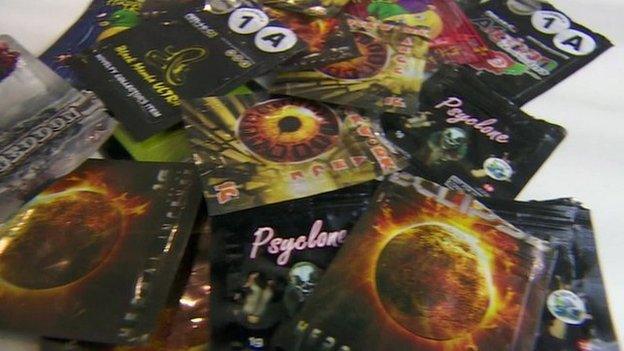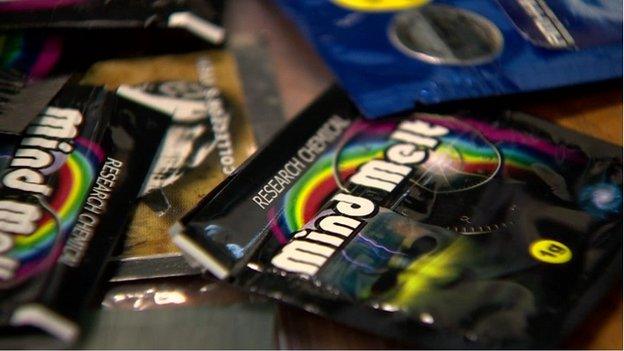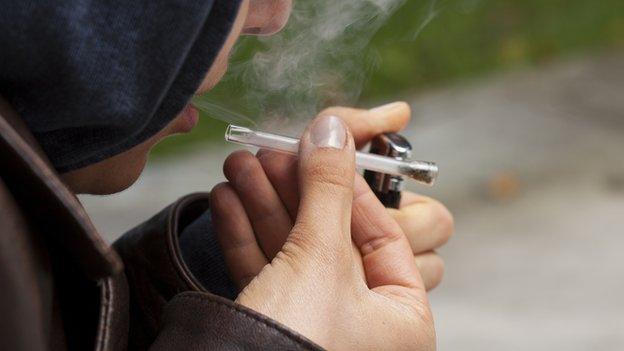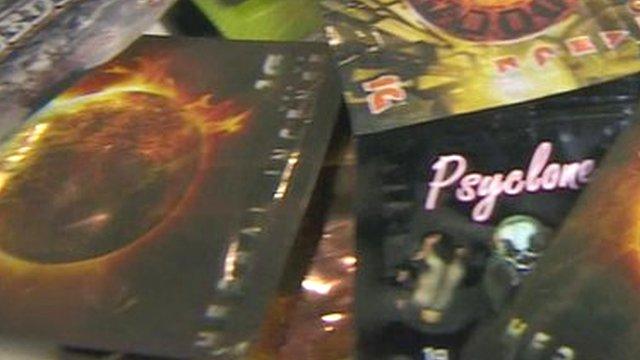Legal highs: Irish ban 'wiped out' headshop industry
- Published

The Republic of Ireland banned the sale of psychoactive substances five years ago
A ban on "legal highs" in the Republic of Ireland has been extraordinarily effective in wiping out the industry, police have said.
The blanket ban, known as the Criminal Justice Psychoactive Substances Act, was introduced five years ago.
Before the law was passed, there were about 100 so-called "headshops" selling legal highs across the state, but that number has since been reduced to zero.
"The headshop industry is gone," Det Supt Tony Howard told the BBC.
He is a member of the Garda (Irish police) Drugs Unit, which has been responsible for enforcing the new legislation.
"We were worried because we saw a whole generation of young people starting to experiment with these new psychoactive substances, and they'd generally be people who wouldn't have otherwise engaged in the misuse of drugs," he said.
"They thought it was safe because of the perception that these were legal highs."
When the blanket ban took effect, it became illegal to advertise, sell, supply, import or export psychoactive substances in the Republic of Ireland.
Tobacco, alcohol, caffeine and medicines have been excluded from the ban.
Before the legislation came into force, the sale of legal highs appeared to be a very lucrative business.
When one Dublin city centre headshop was burnt down in an arson attack, firefighters found a safe in the charred rubble of the building that contained 450,000 euros (£330,000).
As the sale of psychoactive substances was not illegal at the time, police had to hand the cash back to the owner of the safe.
As a result of the ban, that would not happen now.

Irish police said before the ban was introduced, the fact psychoactive substances were legally available in shops gave many young people the impression they were safe to use
Det Supt Howard said many of those who operated the headshops quickly complied with the new law.
"Essentially the industry themselves realised that the legislation was quiet strong and they actually co-operated with us and handed us over any residual product which they had," he said.
So, should the UK follow the Irish government's lead and outlaw legal highs?
It may have taken the headshops out of the high street but not everyone believes the ban is the most effective way to protect drug users.
Tony Duffin, director of the Ana Liffey Drug Project in Dublin said there was still "huge harm" associated with the substances formally sold by headshops.
He said many recreational users are now buying psychoactive substances over the internet instead, and more regular users just go to drug dealers.
"I'm aware that, in New Zealand, they are currently rolling out legislation to regulate headshop drugs. So I think that, in terms of the UK, they would do well to look at all the options on the table in terms of drug policy," Mr Duffin said.
"It's not always about prohibition."
- Published26 May 2016

- Published29 May 2015
